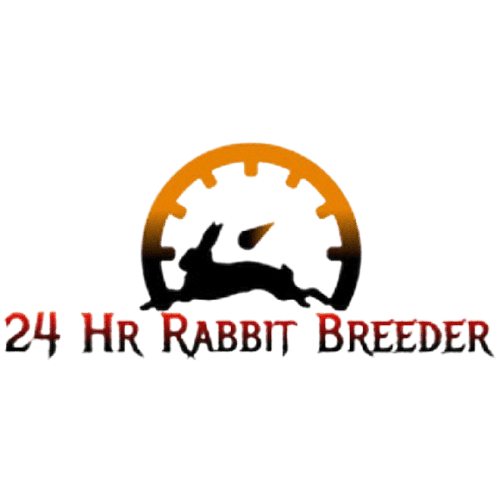Top 5 Flemish Giant Rabbit Care Guide: Free Tips for Raising Your Big, Fluffy Friend
As per 24 Hour Rabbit Breeder, Rabbits, often associated with their endearing hopping and twitching noses, have an uncanny ability to melt hearts. Among the rabbit breeds, the Flemish Giant stands out as a captivating companion. These gentle giants have a unique charm, and with the right care, they can bring joy and companionship to your life. In this guide, we’ll explore the intricacies of caring for your Flemish Giant rabbit, offering insights that will help you create a nurturing environment and a lasting bond.
Understanding Flemish Giant Rabbits
Flemish Giants, as the name suggests, are renowned for their substantial size. Tipping the scales at an average of 14 pounds, these rabbits are truly gentle giants. Their striking appearance is complemented by a friendly and calm demeanor, making them an ideal addition to households that embrace their unique needs.
Choosing a Flemish Giant Rabbit
Before welcoming a Flemish Giant rabbit into your home, understanding its distinct characteristics is essential. Their size demands ample space and proper care. You have the option of selecting a rabbit from a reputable breeder or adopting from a shelter. Both choices have their merits, so consider your preferences and the resources available.
Characteristics of Flemish Giants
Flemish Giants exhibit an irresistible charm with their massive size and soft, velvety fur. Their calm temperament and ability to bond with their owners contribute to their popularity as pets. However, their size requires thoughtful consideration of their housing and exercise needs.
Reputable Breeders vs. Adoption Agencies
Choosing a breeder allows you to raise a Flemish Giant from a young age, fostering a strong bond. On the other hand, adopting from a shelter gives a deserving rabbit a second chance at a loving home. Research reputable breeders or rescue agencies and ensure the rabbit’s health and well-being.
Creating the Perfect Habitat
Creating a suitable living environment for your Flemish Giant rabbit is crucial for their overall health and happiness. Your choice between indoor and outdoor housing should align with your living situation, climate, and the rabbit’s needs.
Indoor vs. Outdoor Housing Options
Indoor housing provides protection from the elements and predators, while outdoor enclosures offer a more natural environment. Regardless of your choice, prioritize a spacious and secure living space that allows your rabbit to move comfortably.
Designing a Comfortable Living Space
Design the living space with your Flemish Giant’s comfort in mind. Multi-level cages or pens allow them to explore vertical space. Provide soft bedding material, such as hay or straw, to ensure their sensitive feet are cushioned.
Suitable Bedding and Flooring
Choose bedding materials that are safe and comfortable. Straw, hay, or specialized rabbit bedding are good options. Avoid wire flooring, as it can cause discomfort and injury. If your cage has wire flooring, provide solid platforms or mats for resting.
Nutrition and Feeding
A well-balanced diet is vital to your Flemish Giant rabbit’s health and vitality. Understanding their dietary requirements and habits will help you provide the best nutrition for their well-being.
Dietary Requirements and Habits
Flemish Giants have specific dietary needs. Their diet should consist of high-quality rabbit food, fresh vegetables, and hay. Provide a variety of vegetables to ensure they receive essential nutrients.
Selecting Appropriate Rabbit Food
Choose commercial rabbit food that is specifically formulated for their breed. Read the labels to ensure it meets their nutritional needs. Avoid food with excessive fillers or artificial additives.
Incorporating Veggies and Hay
Fresh vegetables provide essential vitamins and minerals. Offer a variety of vegetables like carrots, leafy greens, and bell peppers. Hay is crucial for their digestive health and dental well-being.
Portion Control and Feeding Frequency
Portion control is important to prevent obesity. Follow the recommended feeding guidelines on the rabbit food packaging. Divide their daily food into multiple small meals to mimic their natural grazing behavior.
Exercise and Enrichment
Flemish Giants thrive on physical activity and mental stimulation. Regular exercise is essential for their overall well-being and prevents health issues.
Benefits of Exercise for Flemish Giants
Regular exercise keeps your rabbit’s muscles toned and their joints healthy. It also prevents obesity and contributes to mental stimulation.
Setting Up a Play Area
Designate a safe and rabbit-proofed play area where they can hop around and explore. Include tunnels, ramps, and hiding spots to make the environment engaging.
Recommended Toys and Activities
Provide toys that encourage natural behaviors. Chew toys, tunnels, and puzzle feeders engage their senses and prevent boredom.
Grooming and Hygiene
Proper grooming ensures your Flemish Giant rabbit’s coat and overall health remain in top condition. Establish a grooming routine that strengthens your bond.
Brushing and Maintaining Their Coat
Regular brushing prevents matting and keeps their coat clean. Brush gently to remove loose fur and prevent hairballs.
Bathing and Handling Hygiene
While rabbits are generally clean animals, occasional baths may be necessary. Use rabbit-safe shampoo and ensure they are thoroughly dried afterward.
Nail Trimming and Ear Cleaning
Trim their nails regularly to prevent overgrowth, which can cause discomfort. Clean their ears to prevent infections.
Dental Care
Proper dental care is crucial for their well-being. Provide items to chew on, like wooden blocks, to naturally wear down their teeth.
Health and Veterinary Care
Maintaining your Flemish Giant rabbit’s health requires preventive measures and regular veterinary check-ups..
Common Health Issues and Prevention
Be aware of common health issues like GI stasis and dental problems. Provide a balanced diet and ample exercise to minimize the risk of such issues.
Finding a Rabbit-Savvy Veterinarian
Locate a veterinarian experienced in treating rabbits. Regular check-ups and preventive care play a crucial role in their health.
Vaccinations and Regular Check-ups
Stay up to date with vaccinations and annual check-ups. Discuss appropriate vaccinations and health concerns with your veterinarian.
Recognizing Signs of Illness
Learn to recognize signs of illness, such as changes in behavior, eating habits, or stool consistency. Early intervention is key to successful treatment.
Socializing and Bonding
Building a strong bond with your Flemish Giant rabbit enhances their well-being and enriches both your lives.
Building Trust and Rapport
Earn your rabbit’s trust through gentle handling and consistent care. Spend time near them without imposing interaction.
Introducing Flemish Giants to Other Pets
Introduce your rabbit to other pets gradually and under supervision. Create positive associations through controlled interactions.
Proper Handling and Interaction
Handle your rabbit with care, supporting their body and avoiding sudden movements. Gentle petting and talking to them strengthen your bond.
Training and Behavioral Tips
Training your Flemish Giant rabbit ensures a harmonious coexistence and strengthens your relationship.
Litter Training and Behavior Modification
Litter training prevents messes and simplifies cleaning. Use positive reinforcement, such as treats, to encourage litter box use.
Positive Reinforcement Techniques
Use treats, praise, and pets to reward good behavior. Positive reinforcement strengthens desired behaviors.
Addressing Common Behavioral Issues
Rabbits may display behaviors like digging or chewing. Provide appropriate outlets for these behaviors, like digging boxes and chew toys.
Traveling and Handling Emergencies
Prepare for travel and emergencies to ensure your Flemish Giant rabbit’s safety and well-being.
Tips for Safe and Comfortable Travel
When traveling with your rabbit, prioritize their comfort. Use a secure carrier and provide familiar bedding.
Emergency Preparedness and First Aid Kit
Create an emergency kit with essentials like a first aid manual, rabbit-safe medications, and contact information for a rabbit-savvy veterinarian.
Breeding and Reproduction
Breeding Flemish Giants requires careful consideration and expertise. Understand the responsibilities and challenges before embarking on this journey.
Basics of Flemish Giant Breeding

Breeding requires knowledge of rabbit genetics, health considerations, and ethical considerations. Research thoroughly before attempting to breed.

Responsibilities and Considerations
Breeding involves caring for both the mother and the kits. Be prepared to provide special care and attention throughout the process.
Conclusion
Raising a Flemish Giant rabbit is a rewarding journey filled with joys and challenges. By following these guidelines and investing time in understanding your rabbit’s unique needs, you’ll forge a deep and lasting bond. From nutrition and grooming to playtime and medical care, each aspect contributes to their overall well-being. Embrace the responsibility and privilege of raising a big, fluffy friend, and revel in the companionship and happiness they bring into your life.
Have a Question?
FAQ
“A rabbit’s foot may bring good luck to you.”
Flemish Giants can reach an average weight of 14 pounds, making them one of the largest rabbit breeds.
Yes, their gentle nature makes them suitable for families, but supervision is important to ensure safe interactions.
Regular exercise is essential. Provide ample space and engage them in daily activities to keep them healthy and happy.
Absolutely, with patience and consistent training, Flemish Giants can be litter trained successfully.
Keep an eye out for GI stasis, dental problems, and obesity. Regular veterinary care helps prevent these issues.



